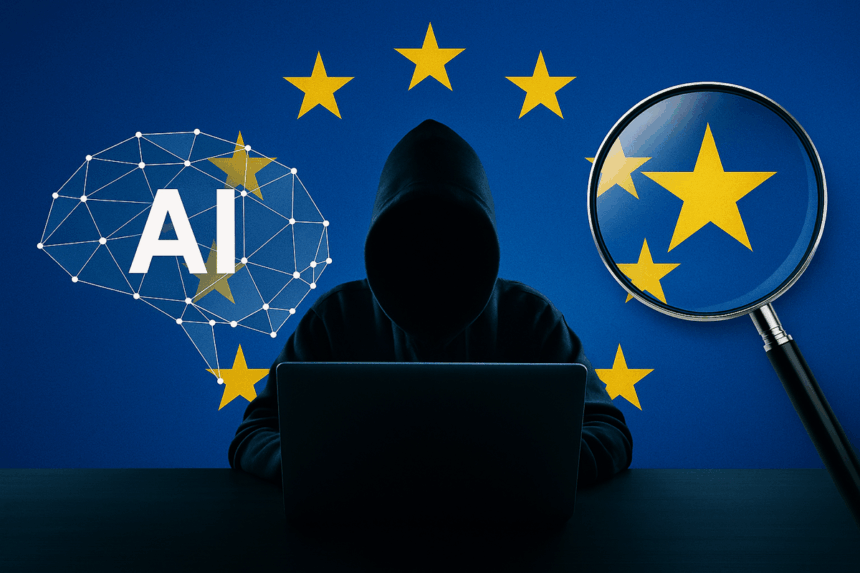The European Union is in a stressful episode for technology, security, and regulation. Leaders promise more uncomplicated digital rules. National agencies investigate data misuse. Governments warn about espionage. And new reports spell out the stakes for Europe if it wants a competitive tech future.
The threads are woven together. Europe is trying to tighten control and increase clarity, simultaneously. Companies feel the weight of new obligations. Governments amplify apprehensions about foreign influence. The result is a tech climate where ambition meets pressure. Policy choices in Brussels sweep far beyond the EU.
What’s Happening & Why This Matters
AI Act Delays and Simpler Rules on the Table

The European Commission plans to delay full implementation of the AI Act until 2027. The delay gives regulators time to build oversight tools and offers companies time to adjust. Germany and France support a simpler structure. They argue the rules are too complex for small firms. They want a plan that encourages AI innovation inside Europe, not outside it.
Internal documents indicate troubles that an overly heavy framework drives entrepreneurs to the US or the UK. Leaders want enough flexibility to keep pace with fast model updates from companies like OpenAI, Google, Anthropic, and Mistral. The conversation concentrates on staged rollouts, clearer enforcement guidance, and realistic expectations for compliance.
Espionage and Data Access
The EU’s privacy conversations took a sharper tone after new investigations and external events. Spanish authorities opened a probe into Meta over allegations of unlawful political data processing during European Parliament elections. Regulators want to know how behavioral targeting intersected with sensitive political categories. At the essence of the question is, when does “personalization” turn into political profiling?
At the same time, security crises are rising across Europe. Russia is now applying a 24-hour mobile internet blackout on foreign SIM cards entering the country. Officials call it a safety measure tied to drone attacks (associated with Ukraine War attacks). Digital rights groups say it political ‘over-control’. The restriction highlights how authoritarian-leaning regimes use connectivity as leverage. It provides EU lawmakers fresh examples as they debate rules for cross-border data access and infrastructure protections.
Reports Warn Europe Is Falling Behind on AI, Computing
A report from Atomico says Europe stands at a “crossroads.” The EU has talent. The EU has strong research. Yet, it lacks the scale, capital, and high-value computing that fuels global AI leadership. AI investment is soaring across the continent. Mistral raised billions. Lovable reached unicorn status in six months. Defence tech is also surging as firms like Helsing attract huge funding.
But Europe holds only a sliver of global GPU capacity. The US and China dominate high-performance computing power. Atomico warns that innovation slows when computing access is limited. The report urges Europe to recruit global AI talent faster and rethink how it funds deep tech research. It further calls for simpler regulation and public commitments that match the EU’s stated ambitions.

TF Summary: What’s Next
Europe enters a defining stretch. Lawmakers want ambitious AI rules without slowing invention. Regulators wish for stronger privacy enforcement while keeping cross-border data secure. And new reports warn that Europe cannot afford slow progress on compute, talent, and capital.
MY FORECAST: Expect a more flexible AI Act and a concerted push for European computing independence. Expect more investigations into political data use. And expect EU leaders to frame every action as part of a U.S.-China competition.
Europe wants to lead. It must decide how bold it is willing to get.
— Text-to-Speech (TTS) provided by gspeech


